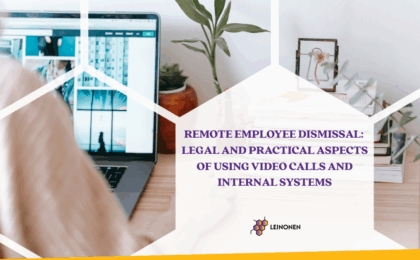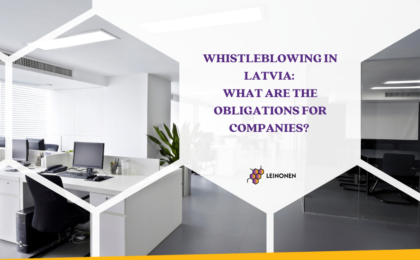Application of transferpricing and market price principle
Transfer price is a price (value) that is applied in a transaction between related parties, namely, between Latvian taxpayer and its related foreign company within the meaning of definition of related companies stated under the Corporate Income Tax (CIT) Act.
Transfer price must comply with the market price – the price that would be applied between unrelated companies in similar transactions made in similar circumstances.
According to the CIT Act application principle of the market price applies not only to transactions performed by Latvian taxpayer with related foreign companies, but also with:
- related domestic companies with which the taxpayer forms a group of companies for corporate income tax (CIT) purposes;
- related domestic companies that are exempt from CIT or enjoy any CIT relief;
- related individuals;
- any companies and individuals situated or established in a tax haven countries or territories.
According to Act on Taxes and Duties Latvian taxpayers with a net turnover exceeding EUR 1 430 000 and transactions with related parties totalling over EUR 14 300 per year must approve that transaction prices correspond to the market price based on the so-called transfer pricing documentation.
However, it must be noted that the CIT Act stipulates that the taxable income shall be increased if the company with related companies carried out the following transactions:
- buys goods or services at prices that are higher than market prices,
- sells goods or services at prices lower than market prices,
- carries out other kinds of mutual transactions (such as interest payments on loans received, remuneration for intellectual property) where the price differs from the market price (value).
Thus, in any case, in case of the State Revenue Service (SRS) audit Latvian taxpayers must be able to justify that the price in transactions with related parties corresponds to the prices that would have been applied in a similar transaction with unrelated companies.
Tax audits and statistics
The taxpayer must submit to SRS the transfer pricing documentation in Latvian within a month after receipt of the request from the SRS. The prices the taxpayer applies to transactions with related foreign companies (transfer prices) SRS may audit within five years after the due date of tax payment, but in other cases, where the market price must be applied according to the CIT Act, audit period is three years.
Currently the SRS has increased focus on Latvian taxpayers’ transactions with related parties and transfer pricing through various control measures (thematic inspections, information requests, tax audits).
Latvian Supreme Court has already issued decisions on three cases, disputes between the SRS and taxpayer about transfer pricing. In addition, now there are 9 ongoing disputes on the court about transfer pricing.
Common mistakes with regard to transfer pricing documentation are:
- insufficient use of comparative data with external unrelated entities or used data are not up to date,
- all influencing factors (functions, risks) or internal comparable transactions with unrelated companies are not taken into account in the selection of comparable data;
- there is insufficient justification for the method chosen to determinate market price of transaction,
- group transfer pricing documentation is not adapted to the Latvian company operation.
If you are interested in the news of tax, employment and other business-related legislation in Estonia and Lithuania, please visit http://leinonen.ee/news and http://leinonen.lt/news/news-2015.




